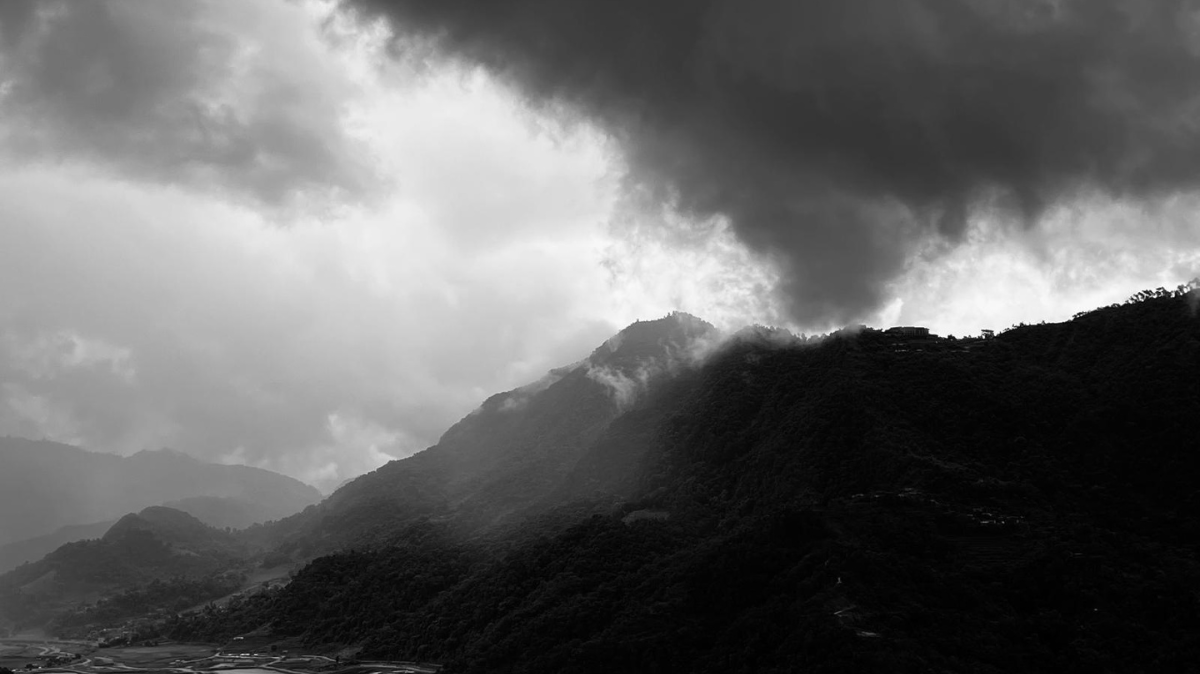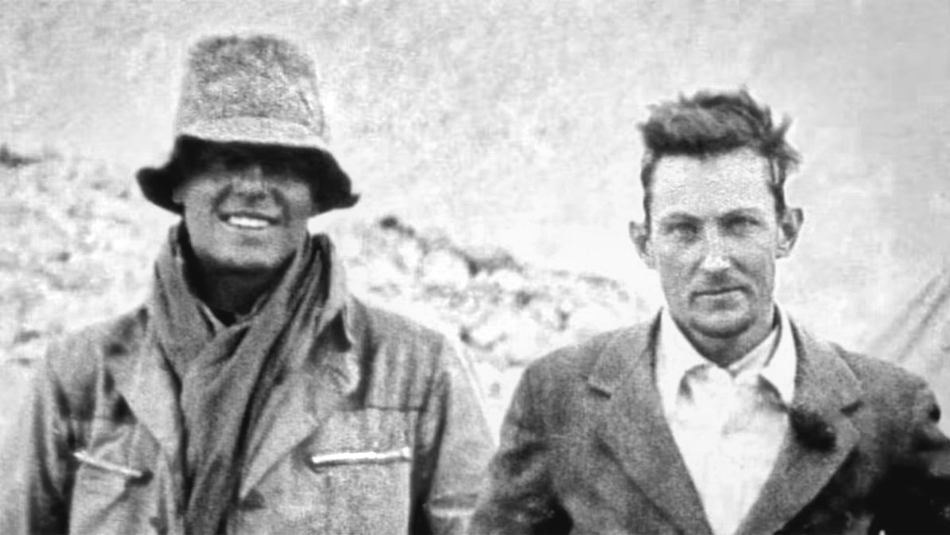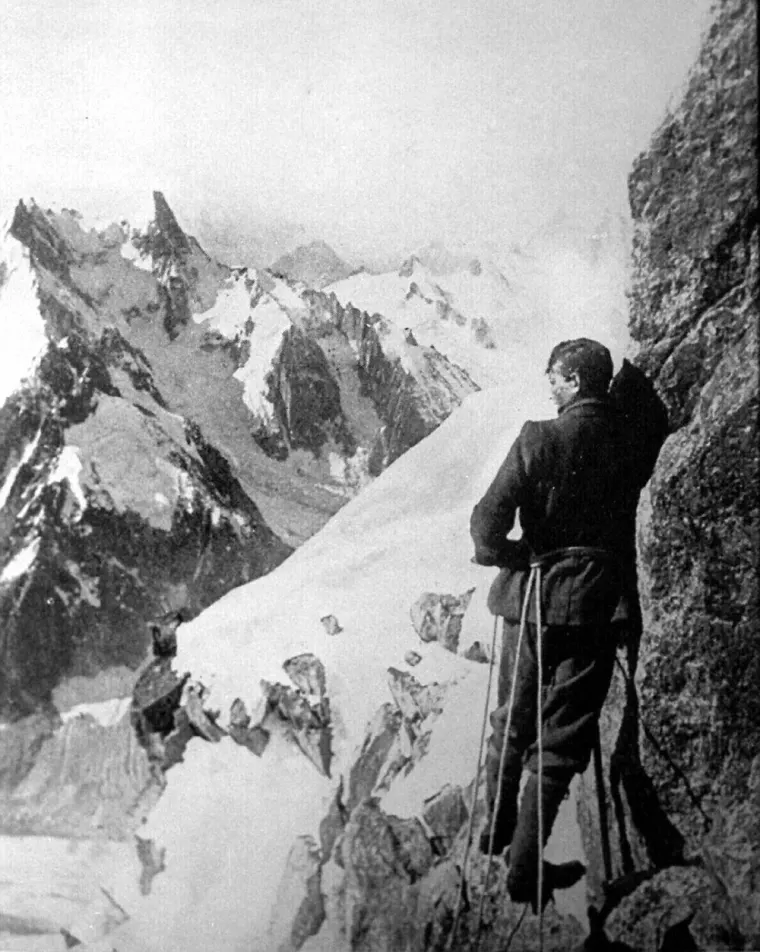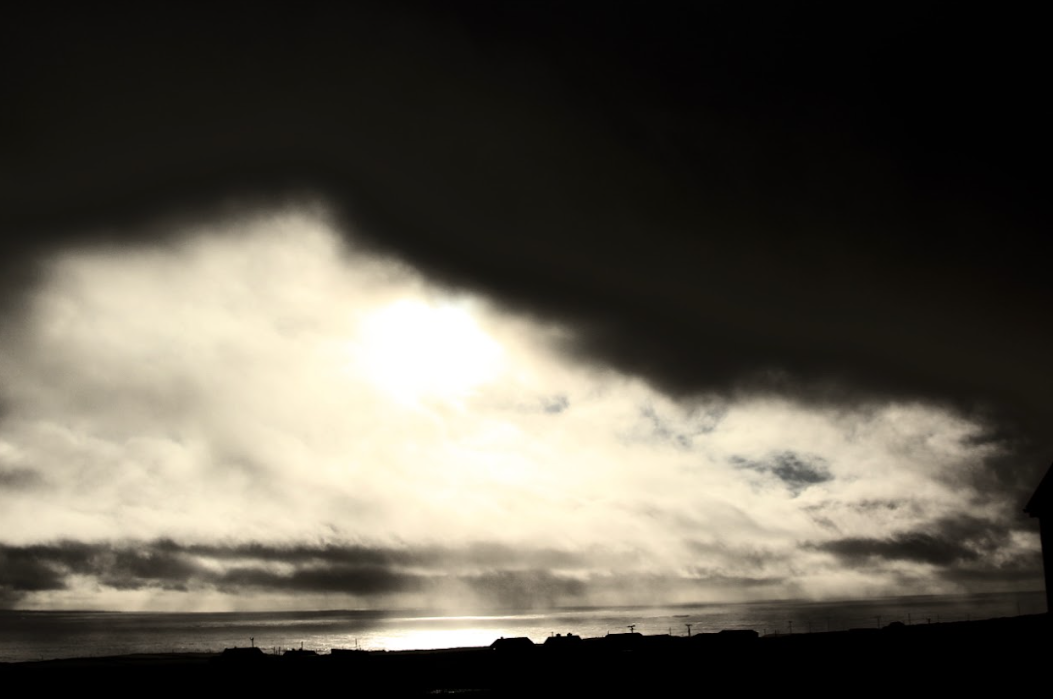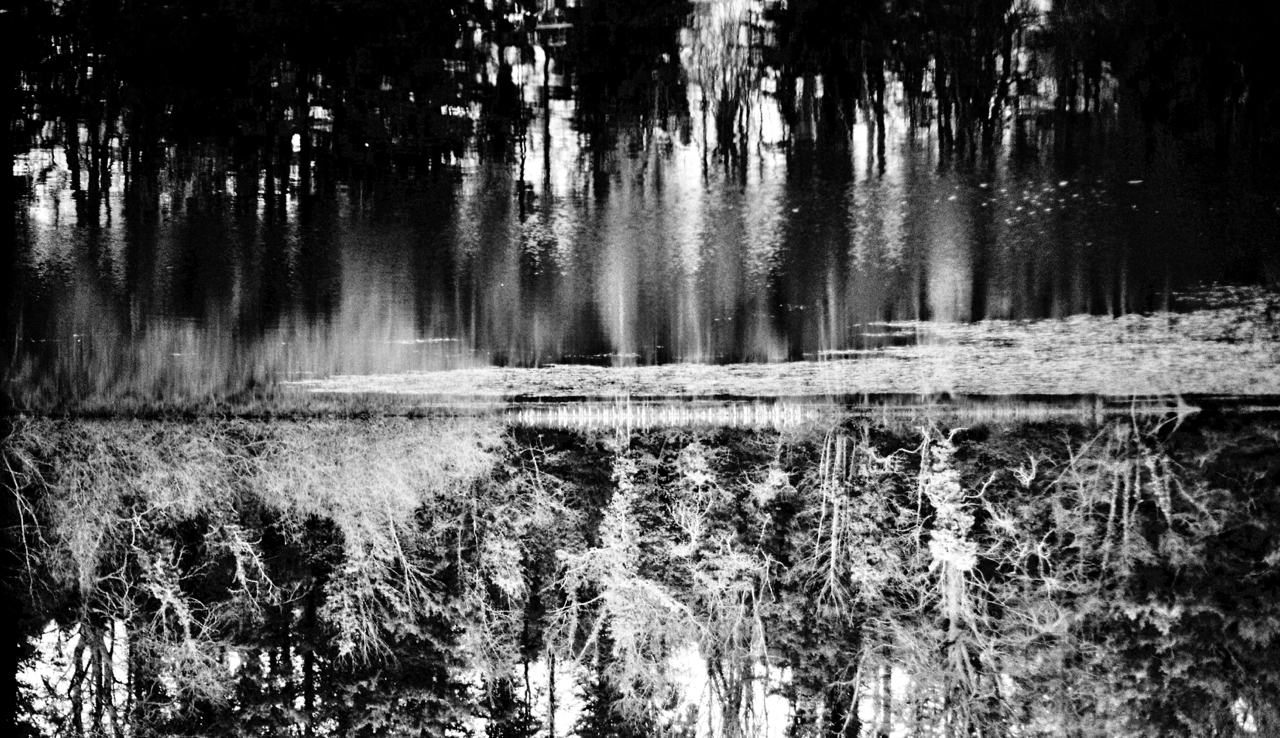NOWHERE NOW HERE — THE NEPALESES DIARIES #4 AI MOUNTAIN HIGHER —NEVEREST.
Now Here: Everest North Ridge, June 1924
On the last day of Life with George Mallory and Sandy Irvine in it, the wrath of the Gods ruling the highest peak on Earth unravelled as predicted by the Dalai Lama: the delusional white men would be greeted mercilessly.
It was the 6th of June of 1924, and Mallory was as possessed as he had been the year before, when his hasty, final attempt to climb Mt. Everest ended up claiming the lives of seven of his strongest Nepalese Sherpa.
On both occasions, the expedition was coming to an end, and Mallory kept refusing to take losing, his pride higher than his immediate graveyard.
In 1924, the climbing party had been severely decimated by the ungodly weather and a number of injuries. On his last day on Earth, Mallory knew his effort was reckless and against all odds. The army leader of the venture, Edward Norton, could also smell the looming fatality: “There is no doubt, Mallory knows he is leading a forlorn hope,” he said to Noel Odell, the last man to see the vanishing heroes, who, by then, had agreed to face the ultimate challenge any rock climber must deal with.
MONEY AND DEATH
1924 marked Mallory’s third expedition as leader mountaineer, and his second as poster-boy. His star had been pumped up by a prearranged marketing campaign commanded by the English tabloid tycoons of the time, a bunch of illiterate bastards with a knack for making money, their favourite word asides from death.
The goal of the crusade was clear as ever: to stab the Union Jack on the umpteenth foreign kingdom, hence to preserve the spirit of colonialism. Mallory had not chosen to be the leader, he just happened to be a natural.
Inevitably, upon the cruellest hour, he knew that he would not allow himself to come back empty handed again: third time’s a deadly charm.
Now Here: Gandaki, Nepal, August 2025.
The man who has lost his sleep, wife, country, farm, friends, appetite and lust trying to hunt you down for the last five years, has never looked quieter or more content since the start of the manhunt. He has been devouring Into the Silence, Wade’s Davis seminal account of the first expedition to Mt. Everest with such fruition that he has started to believe that he might be Mallory’s reincarnation. It is a too forgiving way to look at yourself when you are a murderer.
Before attaining this unexpected, delusional Nirvana, the infamous Carl Murder was seen outside a lovely hotel near Kathmandu’s airport crushing the head of a shaved, plump man with a baseball bat.
NOWHERE YOU
You had pictured yourself doing the exact same thing for so long that upon finding the news your sense of revengefulness feels cheated
How unfair it is that someone else has finished Khaled?
Yes, Khaled, the first singer that you had ever interviewed in the Little Barcelonan Hell, a former prodigy hip-hoper who dumped his Grammy’s dreams to become an AI tycoon and cyborg, and whom you provided with your unsolicited, forced labour: he kept you locked in an underground facility in Marrakech for almost a thousand nights, barely feeding you with dates and shisha’s, until you had completed his nauseating hagiography, a book that made him plumper and richer.
Now Here: Gandaki, Nepal, August 2025
Your only relief is that the executioner, who turned Khaled’s head into a strawberry daiquiri, is the same cop who has been failing to pin you down for the last lustrum, the notorious bloke with a scar like a crooked question mark running from his cheekbone to his earlobe.
As many therapists will tell you, his surname is greatly to blame—for real!
Your surname means “large building, typically of the medieval period, fortified against attack with thick walls.” Therefore, right now, you just want to honour your only purpose: to live and die by your sword, and lure the Murder(er) into hitting your Medieval wall —therefore closing your vengeance against those responsible for the obliteration of your loved ones.
Then you may check out.
Ushuaia, Argentina, March, 2003
You are a young idiot, like most youngsters. You checked in the homestay last night and you were distraught. Your host name is Alejandra. She is double your age and you and her son share the same birthday, although the son is dead.
To sleep under the same roof as Alejandra makes you feel like the description of Ireland’s Beds and breakfast’ uttered by your former Gaelic associate, “The Clown”: “It is like having a sleepover in the house of your best mate’s parents— except for the fact that your best friend is dead.”
MIJITO
You wake up sweating after having the recurrent dream where your mother is a stripper asking you to fill her cleavage with a dollar note.
After trying to dissuade her for an agonizing while, you relent and give her a one-cent coin. She looks at you with maddening eyes, flips it and says: “There’s a lump in my head.”
Before you can react she turns the coin into an AK-47, points it at her nose and fires it, hence you would only realise in hindsight that your dead mother could see the future: there’s a bloody lump where her head was.
You wake up stiff and distraught, have a shower and leave. As you are fleeing Alejandra’s house you get your dead twin room door mixed up with the front door, and walk into his dimly lit chamber. There are dozens of devices and a big screen shining in the dark. You get close to it. There’s an image with a label underneath: HARPER-GOD PRO-AI-XS
You rub your eyes many times to no avail: it is your damned face and it has the same name as the protagonist of your first novel: Harper God! What the heck?
NOWHERE: All the bloody battlegrounds of Europe, 1916
Before the vertiginous glaciers and the heavenly summits, the horror of mankind had reached unparalleled heights. In 1916, some of the future Everest climbers were losing limbs, watches, touch, rings, vision, boots and everything else (including their mental health and further sanity) while fighting the greatest massacre of young souls ever recorded: The Great War.
The only thing the survivors would never lose was the first they would have traded for a kidney or an eye: their memory. Instead of forgetting, they kept gathering the dismembered slides of the gruesome extermination of the brightest minds of their generation.
The North Col, June 6th, 1924
Fast forward eight years and two of the survivors of the carnage, Howard Somervell and George Mallory, the man who had turned all heads with his effortless gait — including the Queen’s head, the Alpine Society heads, the heads of all Tibetan Sherpa, shamans, porters and even the Dalai Lama’s and Virginia Woolf’s head— are leading the last attempt to crown Everest.
The monsoon is a tickling bomb above their heads, and the blizzards are insane. Sandy Irvine, the youngest member and oxygen master of the party, has woken up to a pounding migraine and has remained on the lowest base camp. Mallory misses him while ascending along Somervell and Norton. The winds are bitter, the ice ledge is trembling, and the vertical, frozen walls are reflecting the broken sunshine in murderous fractals. Upon reaching the highest point, 900 metres away from the summit, Norton foolishly removes his goggles, and the piercing fractals burn both his corneas.
Somervell has to escort his blind companion back to base camp, and during the treacherous, slippery descent, a gush of wind and ice enters his mouth and slices his throat. He spits the lining of his larynges before collapsing. Mallory has no choice but to cancel the ascent. He is corroded but not defeated.
NEVEREST
That same night, back at base camp, while everyone is ready to pack, he spends the night putting together the plan for one last go. Almost everyone around him is either blue, seeing double, frostbitten or throwing up.
Himself and Irvine are the only fit climbers left. It is already too late to consider a new attempt, but George finds the perfect excuse: since Sandy has the oxygen and they are the strongest left, they can go up at thrice the speed of the rest. They will leave early and come back by sunset after crowning “the mountain of their desires.”
They are about to become the first humans to ever be entitled to call Mt. Everest, Neverest.
Now Here, Crystal Mountain, Nepal, August 2025
Wade Davis’s emotional and exhilarating account of Mallory and Irvine last days has turned Carl Murder into an insatiable reader.
He has not even smoked since the termination of Khaled. In fact, he has never slept better. He is in such a mood that he has also taken in morning breathwork and yoga, before devoting his sleepless life to reading Into the Silence.
Murder is oblivious to his own whereabouts. He was taken to this freezing underground facility thanks to Alex’s magic. She is the same witch doctor that you met at Now Here, the shelter for young addicts outside Dublin where she killed Nora, your dearest student, and fled the crime scene framing you as the primal suspect.
You have been on the run ever since, but it is only now when you put two and two together: what happened in Argentina 23 years ago has to be related to your current hunt.
Ushuaia, Argentina, 2003
It is 7AM and Alejandra sees you walking out her dead son’s room. You are pale and dishevelled, and she winks at you and asks, “Breakfast Mijito?”
You can’t even say no, you just storm out of the house.
You haven’t slept much since your editor in chief in El País wrote you the infamous email: “You are just A CONTRIBUTOR: never ask for a press pass IN OUR NAME AGAIN!”
You were in Buenos Aires waiting for his green light to attend Mar del Plata’s cinema festival, where you were to interview Lisandro Alonso, Gaspar Noé and Lucrecia Martel.
Instead of the press pass you got the furious email, so you walked back to your hotel and booked a flight to Ushuaia, where you plan to write your first dystopian novel —Harper God, working title— and forget about journalism.
CORRESPONDENT CONTRIBUTOR
Instead of writing the novel, you become its protagonist: it has taken you less than half an hour in Patagonia to get adopted by a new mother, and to begin impersonating your dead twin. It is a furious start, and you act accordingly: after storming out of the house, you start walking towards Ushuaia, the last town of the end of the world.
The hills are purple, the soil red, and the foam of the waves dazzling white. You feel inspired and unreal: you want to have a coffee and write notes for the first chapter using the recent disturbing findings in your dead twin bedroom.
You find a cafeteria named Shackleton, order a double espresso and write the first chapter of your dystopian novel in one sitting.
Before leaving the place you order a glass of water, and the waitress tells you that the bar is named after the Irish man who capsized in this shore while leading the first British expedition to the North Pole.
“Old and fucking unlucky grandpa…”
You ask her to elaborate.
“Shackleton went MIA, and everybody assumed he was dead. But he and his men subsisted on seal meat, penguins, and their dogs, and they remerged five months later. I’m her illegitimate granddaughter, but my brother was the one who found out…and he was killed for it.”
You tell her that you are a journalist: you’d love to know more. Her face lights up: “Come for tea at mine later: I’ll show you everything. I’m Mariana”
CITY OF DOGS
Before leaving, you see a newsstand and grab a copy of La Nación. You read a familiar headline: “Air Jordan’s and Nike Favelas.” It runs a story about the director of City of God, the first ad ever turned into a movie.
His name is Fernando Meirelles. You interviewed him in San Sebastian and the story became the cover of El País’s Friday magazine. He is an unremarkable man who made an unremarkable movie. Today is Friday and La Nación’s magazine opens with the same photo that illustrated your story. You wonder if your dead twin might have written it, and you look for the name of the poor journalist.
“Héctor Castells, Correspondent of El País in Sao Paulo.”
You go beyond pale.
As it turns out, your piece is the biggest story promoting the opening ceremony of the festival that you were denied access to…for being a contributor!
You flounce out of the house. You are shaking with rage. You find an Internet café and you write an email to your editor in chief. You will never work again for such a scumbag. And yet, you will for many others, not that you know.
Violently happy emoji.
Now Here, North Col, June the 8th, 1923
Sandy Irvine was the latest man to join the Everest expedition, and the youngest member of all three ventures. He was recruited for his exceptional skills at fixing things, from oxygen canisters to ice axes, and, well, for having the body of a Greek God, the ultimate reason for Mallory to choose him for deadly glory.
Overall, Irvine could light up a frozen cave with his smile: life with him was better than without.
Murder feels for Sandy like a father. His copy of Into the Silence is crumpled and soggy. As he advances towards the end, he increasingly feels like he is leading Irvine to his death. Maybe if he cancels the reading there is a chance to rewrite its end? To save them both?
BELONGING
He knows that he is into something; he sets aside the book, and starts sweeping the Internet. He scrolls and sobs: he has never felt anything like this.
Is this empathy? Is this what you call it? Belonging? Yes, this is belonging. He smiles like a radiator. He has found the meaning of life. He is George and Sandy.
After sweeping all the online content, he finds a mysterious, extensive article written by an Argentinian journalist who claims that George Mallory was the first fictional character invented by the tabloid tycoons of the time.
“Mallory was crafted as the redeemer of a nation to rebuild the morale of England after the calamitous failure of Shackleton’s expedition to the North Pole and the decline of the Empire.”
DISSOLUTION
Murder momentum crumbles as fast as it has risen. He stands up and there is no trace of his ass in the cushion of his seat. He runs for the toilet. He is not reflected. He is panic-stricken. “Am I cartoon? Mallory’s ghost?”
Horror emoji.
Murder only realises now that he is not a cartoon but a sad, murderous fictional character, and that you, the AI that he thought he was hunting, are his author. He shouts out loud but no one can hear him.
Nobody knows what Mallory’s and Irvine’s last words were, and it is probably not far-fetched to imagine they took an unfathomable fall, and that the echoes of their voices were still filling the void and the silence way after they were gone.
No matter how sentimental, vile and inaccurate were all the stories published about Mallory and Irvine that turned the tabloid tycoons into even greater monsters, the epic account of Wade Davis’ is the mountain where Mallory’s and Irvine’s desires will forever live, an achievement that perhaps only Borges could have dreamt.
The library will endure; it is the universe. As for us, everything has not been written; we are not turning into phantoms. We walk the corridors, searching the shelves and rearranging them, looking for lines of meaning amid leagues of cacophony and incoherence, reading the history of the past and our future, collecting our thoughts and collecting the thoughts of others, and every so often glimpsing mirrors, in which we may recognize creatures of the information…”
Jorge Luis Borges, The Library of Babel.


